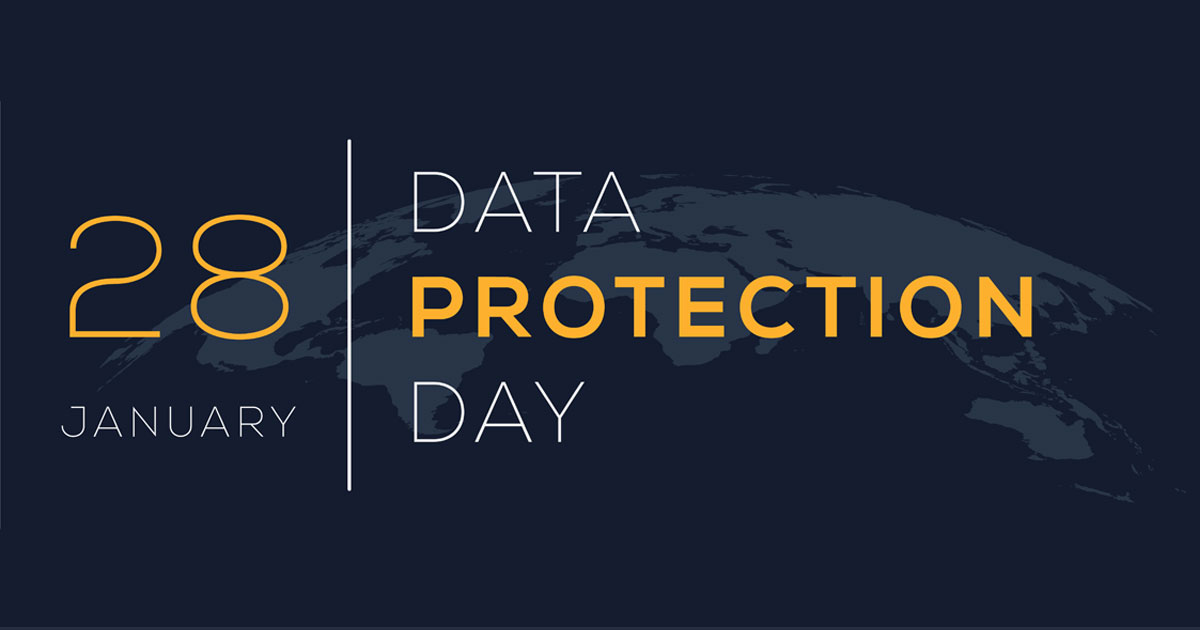The Centre for Human Rights, Faculty of Law, University of Pretoria, joins the global community in commemorating Data Privacy Day, observed annually on January 28. This day serves as an opportunity to raise awareness about the importance of data privacy, empower individuals and institutions, and promote proactive measures to protect personal information.
Data Privacy Day serves as a reminder of the role privacy plays in an increasingly digital world. As African countries continue to embrace the digital economy through innovations such as mobile banking, e-commerce, and digital health services, the protection of personal data has increasingly become urgent. With digital connectivity rapidly expanding across the continent, Africa faces emerging challenges around data privacy that require local, regional, and global attention.
Concerns around cybersecurity threats, data breaches, and the exploitation of personal information are growing. Data Privacy Day provides a timely call to action for individuals, governments, and businesses to adopt stronger measures to protect personal information and safeguard privacy rights. In Africa, where digital transformation is accelerating, these challenges are particularly pressing as they directly impact the future of the continent’s digital landscape.
At the Centre for Human Rights, we recognise the unique challenges and opportunities presented by Africa’s rapidly evolving digital landscape. We are fully committed to advocating for the safeguarding of personal data across the continent, supporting the development of robust data protection laws, and ensuring that human rights are respected in the digital age.
We are committed to promoting the African Union Convention on Cyber Security and Personal Data Protection and other frameworks, while also encouraging alignment with internationally recognised standards like the General Data Protection Regulation (GDPR). We continue to advocate for the effective enforcement of data protection laws throughout the continent, where digital adoption is fast but the regulatory landscape in many countries is still maturing.
As part of our efforts, the Centre has been proactive in developing capacity-building initiatives and training programs to address the pressing digital rights challenges faced by Africa. Our Advanced Human Rights Course on Data Protection in Africa and Artificial Intelligence and Human Rights in Africa have played a significant role in empowering individuals and institutions with the knowledge and tools to navigate the complex issues surrounding data privacy, AI, and human rights.
These courses, taught by leading experts in the field, provide participants with practical insights into pressing issues such as data privacy, digital trade, and the intersection of AI with human rights. By offering in-depth training, the Centre has ensured that participants are well-equipped to address emerging digital rights challenges and advocate for stronger data protection frameworks across Africa.
The Centre has also been proactive in engaging with regulatory authorities and civil society organisations to promote data protection awareness. Through research, capacity building, and advocacy, we aim to promote a culture of privacy and data protection in Africa. We remain committed to ensuring that African citizens’ data is treated with the utmost respect, security, and transparency. For instance, the publication, “Data privacy law in Africa: Emerging perspectives”, examines the impact of data privacy on individuals, businesses, and governments. It provides insights from African experts on evolving regulatory frameworks and explores the legal, social, economic, and cultural implications, with a focus on emerging issues like AI, vulnerable groups, and the COVID-19 pandemic. This resource offers innovative solutions and best practices for navigating the complex intersection of law and technology in Africa.
Across the continent, there is a growing need to educate both individuals and institutions about how personal data is collected, stored, and used, and safeguarding privacy. Many African countries have already adopted data protection laws, but awareness of these laws, and of individual rights under them, remains low. In addition to raising awareness, we are actively involved in advocacy for stronger privacy protections and data rights across the continent. As the threat of cyber-attacks, data breaches, and misuse of personal information continues to rise, it is important that we address these risks with urgency and strategic action.
With the rapid growth of mobile technology and digital services in Africa, individuals must take an active role in protecting their personal information. We encourage the public to follow these practical steps to safeguard their data:
- Use strong, unique passwords and change them regularly.
- Be mindful of what you share on social media and avoid oversharing personal information that can be exploited.
- Enable two-factor authentication (2FA) on all accounts to add an extra layer of protection.
- Regularly review the privacy settings on apps, websites, and devices to ensure that only necessary data is shared.
We also remind individuals of their privacy rights under various data protection laws, including their right to access, correct, or delete personal data held by companies. It is essential that African citizens understand these rights to take full control over their digital lives.
On this Data Privacy Day, it is important to remind the public of Principle 40 of the African Commission on Human and Peoples' Rights (ACHPR) Declaration of Principles on Freedom of Expression and Access to Information in Africa. Principle 40 enshrines the right to privacy as a fundamental human right and highlights the need for robust protections of personal data across the continent:
- Everyone has the right to privacy, including the confidentiality of their communications and the protection of their personal information.
- Everyone has the right to communicate anonymously or use pseudonyms on the internet and to secure the confidentiality of their communications and personal information from third-party access through the aid of digital technologies.
- States shall not adopt laws or other measures prohibiting or weakening encryption, including backdoors, key escrows, and data localisation requirements, unless such measures are justifiable and compatible with international human rights law and standards.
As Africa’s digital infrastructure continues to evolve, these principles must be upheld and respected to protect individual freedoms. Governments across the continent are encouraged to adopt policies that support and strengthen encryption technologies, protect the confidentiality of digital communications, and ensure personal data remains private.
Across Africa, we are seeing rapid developments in data protection laws, reflecting the continent’s commitment to securing personal data. These laws are important in addressing privacy issues and ensuring that businesses handle data responsibly. However, many countries still face challenges in enforcement, capacity building, and ensuring public awareness of these regulations. The Centre for Human Rights is closely monitoring these developments and advocating for stronger privacy protections, particularly in relation to AI and other emerging technologies that will play a major role in shaping the future of data processing. With increasing demand for privacy-first products such as encrypted messaging apps, private search engines, privacy-focused web browsers, secure email providers, and Virtual Private Network (VPN) services, and the growing role of AI in automating decision-making, it is essential that African countries adopt privacy laws that balance innovation with the protection of individual rights.
In promoting data privacy, we:
- call on businesses, governments, and civil society to actively raise awareness about the importance of data protection and encourage individuals to take control of their personal information.
- invite all stakeholders, including governments, businesses, and individuals, to participate in initiatives that educate about data privacy and promote best practices for protecting personal information.
As technology and data usage continue to evolve, the Centre for Human Rights remains steadfast in our commitment to advocating for the privacy and data protection rights across the continent. Privacy is a fundamental human right and must be respected in every aspect of the digital ecosystem.
For more information, please contact:
Expression, Information and Digital Rights Unit
Tel: +27 (0) 12 420 4199
hlengiwe.dube@up.ac.za

